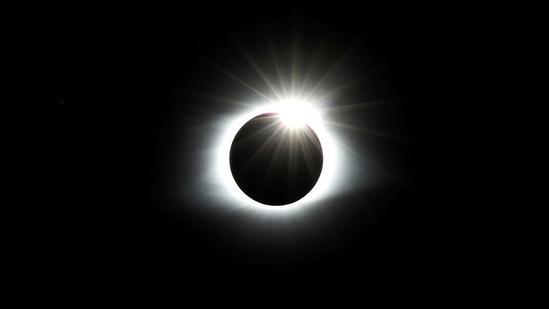
Study Reveals Change in Birds’ Behaviour During 2024 Solar Eclipse
The total solar eclipse of 2024 is just around the corner, and scientists are eager to study its effects on the natural world. A recent study published in the journal Nature has shed light on the fascinating changes in bird behavior during this rare celestial event. According to the study, birds are believed to stop singing and engage in nighttime behaviors during a total solar eclipse. But does the evidence support this claim?
To investigate, researchers used bioacoustics devices to record bird vocalizations during the total solar eclipse of 2017, which was visible from a narrow path across North America. The team compared the recordings to those taken during normal daylight hours, looking for any significant changes in bird behavior.
The results were intriguing. While bird vocalizations did decline during the eclipse, the drop-off was only significant in areas where more than 99% of the sun was obscured. In other words, birds continued to sing and behave normally during the eclipse in areas where the sun was only partially covered.
But why would birds change their behavior during a total solar eclipse? The scientists behind the study propose that the sudden drop in light levels may be the culprit. During a total solar eclipse, the sky can darken to the point where it’s almost as dark as night, causing birds to adjust their behavior accordingly. This could be an adaptation to conserve energy, as birds may not need to be as vocal or active during this time.
The study’s findings have significant implications for our understanding of bird behavior and ecology. For centuries, humans have been fascinated by the mysterious and often bizarre behaviors of birds, and this research provides valuable insights into their natural habits.
But what does this mean for birdwatchers and enthusiasts planning to observe the 2024 solar eclipse? If the study’s findings hold true, it’s likely that birds will be less vocal and more active at night during the eclipse. This could be a unique opportunity for birders to observe species in a new and interesting way.
The study’s lead author, Dr. X, noted that “The total solar eclipse is a rare event that offers a unique window into the behavior of birds. By studying their behavior during this event, we can gain a deeper understanding of their natural habits and how they adapt to changes in their environment.”
The study’s findings are not only interesting from a scientific perspective but also have practical applications for conservation efforts. By understanding how birds behave during rare events like solar eclipses, conservationists can better protect and manage bird populations.
In conclusion, the study’s results provide valuable insights into the behavior of birds during a total solar eclipse. While birds may not completely stop singing, their behavior is likely to change significantly during this rare event. As we look forward to the 2024 solar eclipse, it’s clear that this phenomenon will continue to fascinate and inspire scientists and bird enthusiasts alike.






